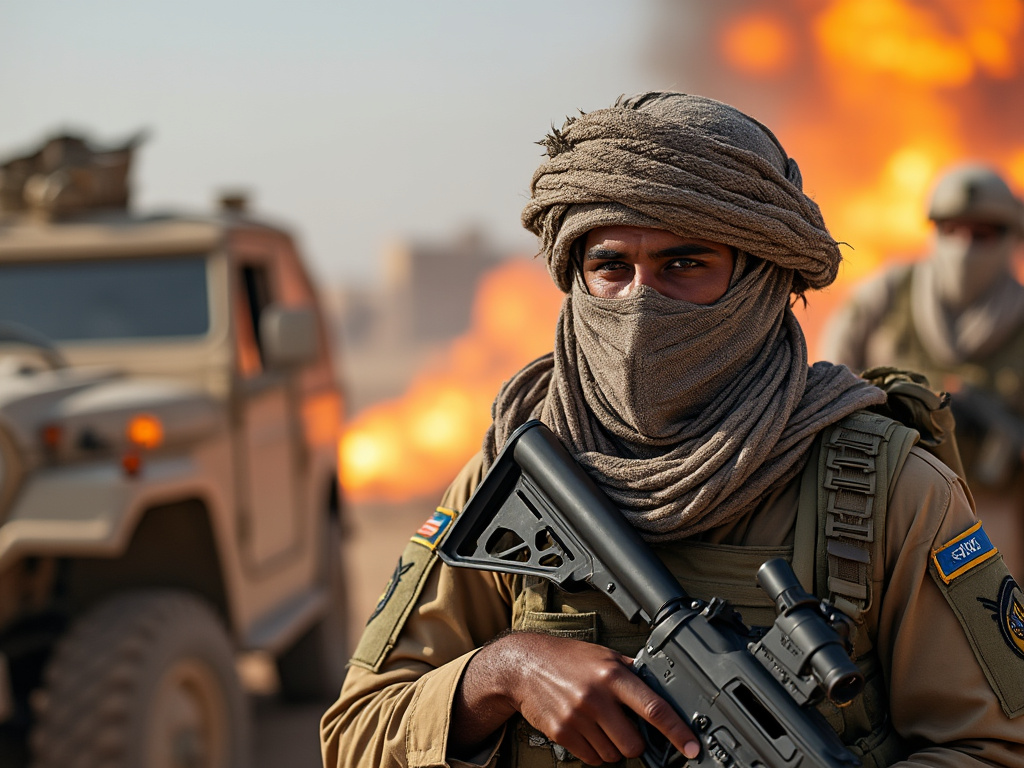
Intensified U.S. Airstrikes Target Houthi Positions in Yemen Amid Rising Tensions
Recent military actions lead to casualties and escalating rhetoric from both the U.S. and Houthi leadership.
On March 31, 2025, reports emerged regarding ongoing U.S. airstrikes on Yemeni capital Sana'a and surrounding regions, as casualties and military actions continue to escalate.
The Houthi-controlled media indicated that three targeted airstrikes were conducted north of Sana'a, following a series of airstrikes in northeastern areas of the capital.
Initial reports from the Houthi health ministry cited two fatalities and one injury resulting from a U.S. strike on a vehicle in the Bani Qais district of Hajjah governorate.
The previous day, Houthi sources reported that one individual was killed and four injured during American bombardment on the Al-Qabel village in Bani Harith district, also north of Sana'a. The intensity of the strikes has reportedly reached unprecedented levels, with Houthi claims indicating that 43 U.S. airstrikes were logged on various governorates, including Amran, Sa’dah, and al-Hudaydah since March 29.
U.S. Central Command provided visual documentation illustrating the initiation of these airstrikes, highlighting the military capabilities deployed against Houthi positions.
Since the commencement of intensified operations, U.S. military officials claim to have significantly weakened Houthi forces, alleging the elimination of numerous Houthi leaders and militants.
Concurrently, U.S. President Donald Trump issued renewed threats, warning the Houthis and their Iranian backers that forthcoming actions would be increasingly severe.
Trump highlighted that the recent U.S. military efforts have devastated Houthi capabilities, asserting that their options are limited, urging them to cease targeting American interests in exchange for a halt in strikes.
This military campaign follows Trump’s announcement on March 15, when he ordered a large-scale military attack against the Houthi faction in Yemen, indicating a shift in the operational strategy compared to previous administrations.
The Houthis have responded by maintaining their offensive operations, including attacks on Israeli-associated shipping routes in solidarity with the Palestinian territories.
Further complicating the situation, Iranian officials have voiced their support for the Houthis, with Iranian President Masoud Beheshkiyan affirming Iran’s solidarity with Yemen amidst U.S. threats.
Iran's Foreign Minister, Abbas Araghchi, denounced the U.S. military actions as a consequence of the Houthi resistance, characterizing the narrative of imminent U.S. aggression as unfounded.
As the military confrontation unfolds, humanitarian concerns in Yemen are exacerbating, with the Houthi-controlled health ministry indicating that the civilian toll from the airstrikes has risen alongside the escalation of military operations, further deepening the humanitarian crisis that prevails in the region.
The Houthi-controlled media indicated that three targeted airstrikes were conducted north of Sana'a, following a series of airstrikes in northeastern areas of the capital.
Initial reports from the Houthi health ministry cited two fatalities and one injury resulting from a U.S. strike on a vehicle in the Bani Qais district of Hajjah governorate.
The previous day, Houthi sources reported that one individual was killed and four injured during American bombardment on the Al-Qabel village in Bani Harith district, also north of Sana'a. The intensity of the strikes has reportedly reached unprecedented levels, with Houthi claims indicating that 43 U.S. airstrikes were logged on various governorates, including Amran, Sa’dah, and al-Hudaydah since March 29.
U.S. Central Command provided visual documentation illustrating the initiation of these airstrikes, highlighting the military capabilities deployed against Houthi positions.
Since the commencement of intensified operations, U.S. military officials claim to have significantly weakened Houthi forces, alleging the elimination of numerous Houthi leaders and militants.
Concurrently, U.S. President Donald Trump issued renewed threats, warning the Houthis and their Iranian backers that forthcoming actions would be increasingly severe.
Trump highlighted that the recent U.S. military efforts have devastated Houthi capabilities, asserting that their options are limited, urging them to cease targeting American interests in exchange for a halt in strikes.
This military campaign follows Trump’s announcement on March 15, when he ordered a large-scale military attack against the Houthi faction in Yemen, indicating a shift in the operational strategy compared to previous administrations.
The Houthis have responded by maintaining their offensive operations, including attacks on Israeli-associated shipping routes in solidarity with the Palestinian territories.
Further complicating the situation, Iranian officials have voiced their support for the Houthis, with Iranian President Masoud Beheshkiyan affirming Iran’s solidarity with Yemen amidst U.S. threats.
Iran's Foreign Minister, Abbas Araghchi, denounced the U.S. military actions as a consequence of the Houthi resistance, characterizing the narrative of imminent U.S. aggression as unfounded.
As the military confrontation unfolds, humanitarian concerns in Yemen are exacerbating, with the Houthi-controlled health ministry indicating that the civilian toll from the airstrikes has risen alongside the escalation of military operations, further deepening the humanitarian crisis that prevails in the region.











